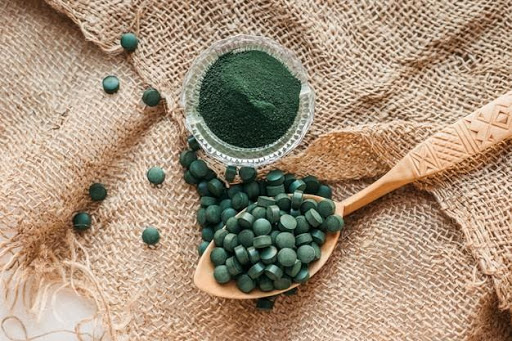You’ve probably heard a lot about vitamins and how important they are for a variety of bodily processes. Vitamin A, for example, is essential for eye health. Vitamin D strengthens your immune system, vitamin C offers collagen benefits for men and women, and so on. Have you ever thought about what role vitamins play in improving muscle building and health?
8 Best Vitamins That Support Muscle Growth
Because you all have busy lifestyles, here’s a list of the best vitamins and minerals for muscle growth and recovery. Keep in mind that this isn’t a ranking; they’re all equally essential.
Vitamin D
This “sunshine vitamin” is obtained through exposure to sunlight, we all know that. When you work indoors or don’t get enough sun, it’s difficult to receive the amount your body needs. This vitamin aids in the maintenance of healthy bones and supports protein synthesis, both of which are essential for our overall health and strength. Vitamin D also aids in nutrient absorption, mood regulation, and insulin sensitivity.
Getting enough vitamin D from food alone might be challenging, but you can get your supply from fatty fish, soy milk, egg yolk, and cheese. There is no harm in taking vitamin D supplements.
Vitamin B12
Vitamin B12 aids in the production of red blood cells, which are in charge of transporting oxygen to the muscles. Therefore, B12 is an important factor in muscle growth. It can be found in a variety of meals, including fish, chicken, and dairy. If you are a vegan or a vegetarian, you are more susceptible to Vitamin b12 deficiency, therefore include foods like soya bean, plant milk, soy and, fortified cereals in your diet. You may also consider taking vitamin B12 supplements.
Vitamin C

Most of us have been taking Vitamin C since we were kids! When it comes to improving immune function and increasing antioxidant levels, vitamin C is the best. It can even help in the restoration of damaged tissues, which is important when working out.
Vitamin C has some excellent muscle-building, healing, and other body-boosting properties. It’s also a powerful antioxidant. Taking it as a supplement or consuming it via food can boost your blood antioxidant levels by up to 30 percent.
This vitamin can be found in a variety of foods, including tomatoes, citrus fruits, and leafy greens.
Vitamin B2 (Riboflavin)
Riboflavin is a vitamin that belongs to the B group of vitamins. To be more specific, you can call it vitamin B2. It is a water-soluble vitamin, which means it cannot be stored in muscles or cells and must be absorbed daily, either via supplement or food. Riboflavin is present naturally in foods and is also synthesized artificially. Both methods are perfectly acceptable, although many athletes choose to take supplements because it’s the easy way out.
Unfortunately, B12 is a vitamin that many people overlook, which must be a part of your supplement stack. Foods that are good sources of Vitamin B12 include fortified cereals, milk, eggs, mushrooms, and plain yogurt.
Vitamin B9
Vitamin B9 is essential for muscular development. Folic acid is a synthetic form of vitamin B9 whereas folate is a vitamin B9 that occurs naturally in food but it can also be taken as a supplement.
For energy, and muscle tissue building and repair, the body needs folate and vitamin B12. You can get Vitamin B9 from foods like avocado and spinach, but if you are looking for a supplement, a folate pill should do the work. Take it regularly.
Magnesium
Magnesium is the body’s fourth most prevalent mineral and the second most abundant element inside cells. This mineral is responsible for hundreds of activities in our bodies. Since magnesium is a mineral, and while vitamins and minerals both aid in body activities, they are not the same. Minerals are inorganic, whereas vitamins are organic. This simply implies that it does not include any carbon-based components, which means minerals are far more stable than vitamins when it comes to cooking.
Magnesium is commonly taken by athletes in the form of food and supplements due to its numerous body-boosting properties. It can even aid in regular protein synthesis. Protein synthesis is the holy grail of muscle development, as it aids in the formation and repair of muscle tissue.
Foods like wheat, seeds, greens, oats, dry beans, nuts, and whole grains are great sources of magnesium.
Conclusion
Vitamins are essential for muscle growth and recovery. They work on a cellular level to help with things like oxidative stress reduction, membrane repair, and the production of collagen. They also aid in the development of muscle mass and give them structural strength.
Do make these vitamins a part of your daily regimen, ideally via food for better absorption. You will notice the difference soon!












